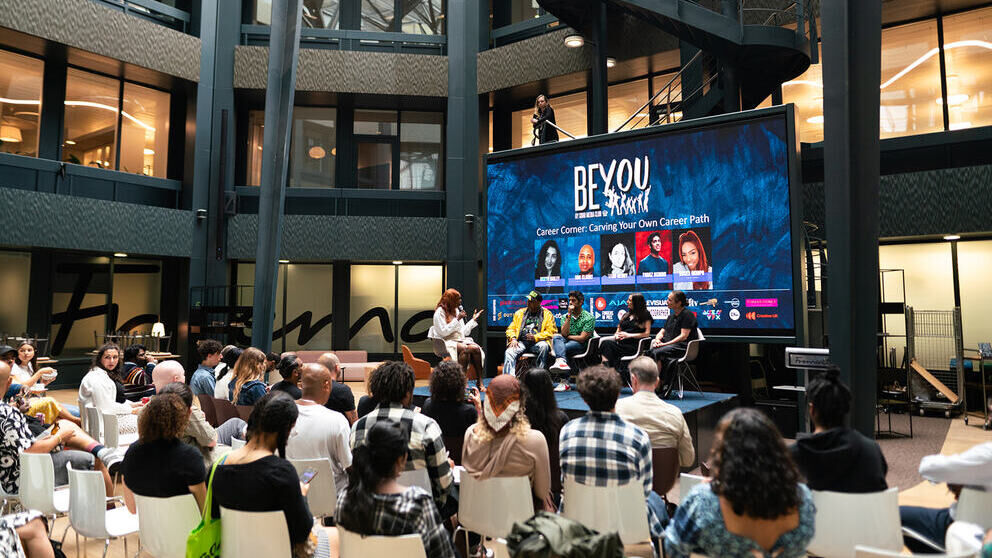Aspirations vs. the reality of diversity progression in media production proved to be an indispensable conversation at Soho Media Club and Outernet London’s collaborative event, BE YOU Festival which took place in London this month, reports Sheryl Hickey.
The BE YOU Festival covered challenges and successes in D&I across the industry, through breakaway sessions, new talent advice, tech sessions, Q&A’s, wellbeing workshops, and a presentation on the IBC Accelerators from an R&D perspective: How Inclusion & Accessibility come first in Innovation.
Audiences and speakers also debated the cardinal topic of generative AI, is it an existential threat to creativity and jobs, or just a novel plaything? In a talk on AI bias in data sets – i.e. AI being a reflection of our own bias in terms of our own images, proved that we are still a long way off an accurate reflection of society. Sarah Beranek, Automatic Speech Recognition/Machine Learning Scientist at AppTek advised it’s time to “embrace and try out AI – it’s not going away – we’re just at the beginning.”...
You are not signed in
Only registered users can read the rest of this article.

Poacher turned gamekeeper: Netflix rules, for now
Netflix raids Hollywood to land a giant of old media, but having offered billions over the odds for ageing IP, would a smarter play have involved the creator economy?

Truth in the age of deepfakes: Building trust in the human-machine era
As deepfakes become prevalent throughout the media industry, experts at the BBC, Guardian, and ITN wrestle with the implications of today’s unprecedented levels of disinformation and distrust.

Rory Peck Awards: Truth has never needed its defenders more
This year’s Rory Peck Awards was an affirmation that press freedom is in severe danger, that it has become a vicious fight to sustain that facts matter. George Jarrett reports.

Camerimage: “The time to be afraid of AI was two years ago”
The festival of cinematography remains political with the rise of AI and gender equality bubbling beneath the surface.
.jpg)
Content Everywhere: Disruptive forces in 2025, from AI to ROI and SGAI
Looking back over 2025 to date, it’s clear that AI continues to widen its role in the Content Everywhere ecosystem, and many companies are becoming more discerning about how and where the technology should be applied to streaming and video technology. Clearly, there is still much more to come, and much more to learn, but what have recent developments taught the industry to date?




